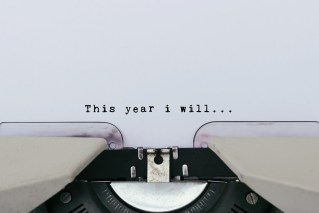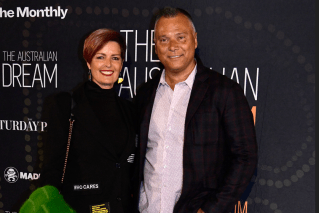‘Gaydar’ is harmful stereotyping, study reveals
Using “gaydar” to identify if someone is homosexual is a harmful waste of time, researchers claim.
A team from University of Wisconsin-Madison challenged what they identified as “the gaydar myth” and found not only was it inaccurate, it was a damaging form of stereotyping.
A 2008 study from a different group of researchers suggested people could accurately identify someone’s sexual orientation based on photographs of their faces.
• Baird defends school’s stance on gay movie screening
• PM to accept same-sex marriage vote ‘wholeheartedly’
• Former PM changes gay-marriage stance
But in the University of Wisconsin-Madison team’s paper published in the Journal of Sex Research, this was found to be untrue based on the parameters of the study.
For example, the gay men and lesbians had better quality images than their straight counterparts, according to lead author Dr William Cox.
When researchers controlled for differences in photo quality, participants were unable to tell who was gay or straight.
Also misjudgements could easily be made because such a small percentage of the population, referring to the figure of 5 per cent in the US, was gay, Dr Cox said.
“Imagine that 100 per cent of gay men wear pink shirts all the time, and 10 per cent of straight men wear pink shirts all the time,” he said.
“Even though all gay men wear pink shirts, there would still be twice as many straight men wearing pink shirts.
“So, even in this extreme example, people who rely on pink shirts as a stereotypic cue to assume men are gay will be wrong two-thirds of the time.”
Further experiments conducted by the team found if you told people they had gaydar, it legitimised the use of those stereotypes such as “he likes shopping”, Dr Cox said.
Additionally the study suggested people did not realise they were harmfully stereotyping because the term camouflaged its power to hurt.
“If you’re not calling it stereotyping, if you’re giving it this other label and camouflaging it as gaydar, it appears to be more socially and personally acceptable,” Dr Cox said.
He said that was harmful because it limited opportunities for members of those groups, narrowing how people perceived them and promoted discrimination.
University of Queensland researcher Dr Sharon Dane said there was no truth to being able to tell a person’s sexuality by looking at them.
“The studies that have looked at that have looked at micro-facial expressions, and that’s fine in an experimental lab, but people in real world don’t operate like that,” she said.
She added stereotyping was commonly a natural, innocent behaviour, but one people needed to be more wary of doing.
Early disclosure reduces stereotyping: Australian study
Dr Dane is the lead author of a new study, released today, that reveals the earlier a same-sex attracted person reveals their sexual orientation to a heterosexual person, the less likely they are to be stereotyped.
She told the ABC the study, When ‘In Your Face’ Is Not Out of Place, found heterosexual participants (about 500) liked the gay or lesbian person more, sat closer to them, were more willing to introduce them to friends and meet them alone if sexuality was established earlier.
This was done through casual disclosure, for example, a man saying he was running late because his “husband left the keys in my car”.
“On the other hand, those who only found out after getting to know the gay or lesbian person better appeared to become fixated by this information and consider it as a defining quality,” Dr Dane said, therefore leading to an increased likelihood of stereotyping.
She said this occurred because there was a mismatch between what the person “had in their head” and what they discovered, causing them to think back and reprocess information now knowing they were gay.
“That’s how they begin to stereotype,” she said.
Dr Dane said through past work she found heterosexuals did not correctly identify even once told that a confederate (an actor partaking in a study) was gay if they did not “come out”.
-ABC









